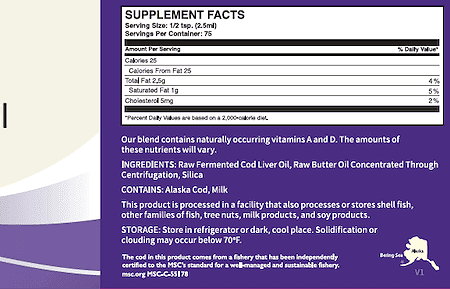Related to hormonal imbalance, the endocrine system is a communication network in our bodies.
This network delivers critical information about our core vital processes, such as our sleep cycle, heart rate, reproduction, emotional states, metabolism, and stress responses.
We decieded to do some research and report to you what we found.
This sophisticated communication network in our bodies uses compounds called hormones that signal to organs, glands and individual cells what our body most needs at any given moment.
Endocrine glands secrete specific hormones into the bloodstream in order to maintain the homeostasis of our body, specifically between the other major systems (nervous, digestive, circulatory, etc).
When imbalances occur between the frequency and amount of hormones being secreted, usually caused by dietary, exercise, and environmental factors, we get thrown into a state of sub-optimal performance.
Sometimes slight imbalances occur and just need to be accepted as another aspect of life.
Our bodies cannot be perfectly attuned and balanced every second of every day, and expecting it to be will cause one to develop hypertension and an imbalance of stress-inducing hormones because fo the unnecessary pressure being put onto oneself to be perfect.
So while it is true that we all have our up and down days, sometimes those up and downs become more frequent that we’d like to admit. They start happening a few times a month, then a few days a week, until we find ourselves fighting an uphill battle nearly every day.
This slow creep into a life normalized by stress and fatigue is the first sign that you have an imbalance caused by an unsustainable lifestyle, and it can lead to serious health problems if the underlying cause is not promptly addressed.
How to Know if You Have Hormonal Imbalance
According to many studies imbalances are far more common in women, but those statistics may be skewed because of male reluctance to visit a therapist or doctor who specializes in treating the psychological problems that are often the first tell-tale signs of problems associated with our endocrine system.
Men and women will experience the symptoms in subtly different ways, and mask those imbalances differently as well.
But both sexes suffer from the high-octane, technologically overwhelmed society where imbalances are treated as unfortunate obstacles that everyone must simply power through. Most of us have dealt with this situation in the short-term, but over the long haul is simply a recipe for a more profound burn-out later on.
Fatigue
We all get tired at least once a day, but when we are unable to conjure up strength for an important task, or are just feeling worn down too often, this is the most common symptom that your hormones are being overworked and that your body is not getting the proper amount of time to recuperate down to a cellular level.
Sudden fluctuations in weight
This is a more common symptom for women, but since the endocrine system has such an important role to play in our metabolism, sudden changes in body fat and one’s ability to burn fat will result in major changes in our outward appearance.
Eating nutrient-deficient foods with synthetic ingredients will have a negative effect on overall weight management, but another common cause for weight fluctuation is living an over-stressed lifestyle.
When our body releases the hormone cortisol during stressful situations, instead of burning the food as energy our body will store the energy as fat as a survival mechanism to the perceived danger/stressor.
Low Sex Drive
Testosterone and estrogen production are the primary sexual hormones produced by the endocrine system, and both males and females can have imbalances in either one, causing very unwanted and sometimes even embarrassing symptoms.
Not only will the desire for healthy sexual contact with a trusted partner be diminished, but men with imbalances of testosterone will have a much more difficult time maintaining an erection, and women with estrogen imbalances will be inconsistent with their partner, experience more painful sex, and will be less apt to emotionally connect.
Anxiety and Difficulty Sleeping
One of the most common of all symptoms is the inability to fall asleep quickly, or a sense of restlessness and the inability to enjoy a night of deep, rejuvenating sleep. Excess cortisol and adrenaline, as well as low amounts of testosterone, are main contributors of insomnia in men, and oftentimes will lead to states of chronic depression.
An under active hypothalamus will release low levels of melatonin, which is the hormone for regulating our circadian rhythms, and an over active hypothalamus will result in inconsistent levels of melatonin that can result in waking in the middle of the night with chills or sweating and otherwise restless sleep.
How to Cure Hormone Imbalance
Our endocrine system is how our body is self-regulates, and so the first place to begin is for self-regulating one’s psychological state of being.
The biggest cause for disease is stress, which is the body releasing cortisol to handle it, and cortisol running through our bloodstream is essentially telling our body that it is in an extreme situation that requires energy conservation, concentration, and that it must stay awake.
To put it simple, excess cortisol will wear the body down faster than any other hormonal imbalance.
Keeping a healthy daily routine that balances work and relaxation is how cortisol levels can begin going back to normal. A daily practice of meditation, yoga, or simply taking a walk every day at the same time are long term solutions that have been proven time and again in research experiments and in everyday life to pull people back from the brink of stress-related diseases.
Another undervalued solution to a hormone imbalance is getting enough Vitamin D everyday from direct sun exposure.
Low levels of Vitamin D have been shown to have a correlation with colon diseases, frequent bouts with influenza, heart disease, and hypothyroidism. 10 to 30 minutes per day in the sun is usually sufficient, and is a great natural way to improve imbalances subtly but efficiently.
Another time-tested way to re-balance our hormonal messenger systems is through adaptogenic herbs. Just as the name sounds, these flowers, roots and fruits have been used for thousands of years in traditional Chinese medicine as well as in Ayruvedic healing.
Some of the most commonly used are ginsing, reishi mushroom, chaga mushroom, rhodiola, schisandra, goji berries, and Chinese licorice.
These powerful herbs work on multiple levels of the immune system and don’t simply re-balance one area. They help lower cortisol levels, stabilize metabolic rates, work as antioxidants, reduce inflammation, and even act as subtle aphrodesiacs.
They can be found in many health food stores in their herb form and as powders, and are used very effectively steeped in teas.
When feeling out of sync and undergoing difficult periods when our bodies are telling us to slow down, fortunately there are many simple and effective solutions that do not involve taking prescription medication and simply require adjusting our lifestyle choices.
Before imbalances get too out of hand and serious illnesses arise, improving our choices of food, exercise, and mental atmosphere towards natural solutions will all have profound effect in returning to internal homeostasis.


























